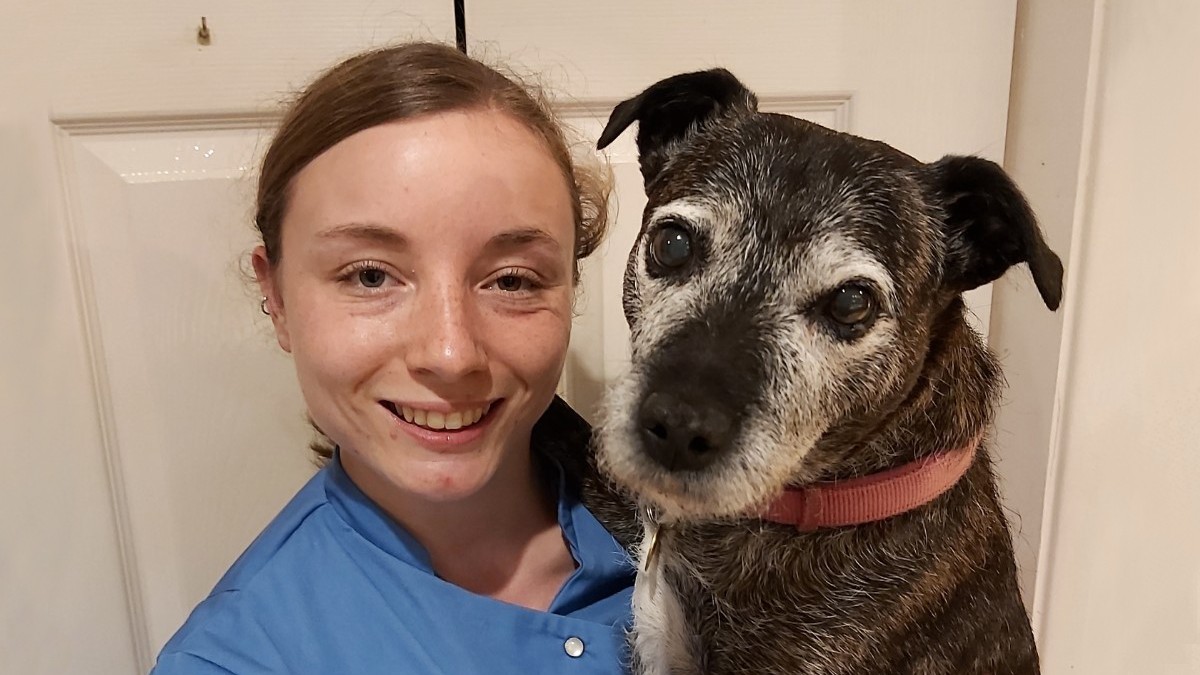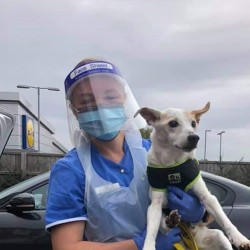My first month as a vet
Hi there, I’m Tamsin Riley and I’m a newly graduated vet (it still feels weird writing it)! I'm here to share with you my first month in practice and the top five lessons I've learnt.

"When I was offered a job with a fantastic team, near my family, with time to enjoy doing the things I love, it didn’t take me long to accept!"

A bit about me
As a veterinary professional, I’ve got a keen interest in small animal surgery, first opinion medicine and exotic pets. Hobby-wise, I love to bake, run, explore the British countryside and keep a menagerie of (mostly exotic) pets.
I’m from Derbyshire and very much a home-bird, so when I came to complete my final year rotations across several counties, I struggled. When I was offered a job with a fantastic team, near my family, with time to enjoy doing the things I love, it didn’t take me long to accept! Looking back, I have absolutely no regrets.
My first few weeks
Even as a confident person, in a familiar team, the first day is terrifying. There’s no way around it. The weight of the past five years sits on your shoulders as you try to convince yourself it’s ok not to know everything (especially when you can’t work the computer systems…). I was left off rota for my first day and then slowly eased into a normal routine. I’ve been supported at every stage and still get supervised by the clinical director if I’m on an ops day and have 30-minute consults – a godsend!
In such a short period of time, I’ve had so many highlights, including my first solo bitch spays, diagnosing and removing my first skin tumours with clean margins, successfully removing a thorn from a cat’s eye, and only panicking internally when the horrific reflex uveitis became apparent, before taking a deep breath and dealing with it head on.
I’ve done my first puppy checks, with clients thrilled at their new addition. But on the other hand, I’ve also completed my first euthanasia. Nothing prepares you for having to see clients say goodbye to a member of their family.
Above all, the best times have been those moments of relief and pride when a client comes back for a re-check, and you ask, “How’s Fluffy doing?” which is met with a beaming smile and a “He’s loads better!” What seems trivial to you can mean the world to a client and their pet.
My top five lessons
The learning curve is almost vertical, as you put theory into practice, taking responsibility for cases you’ve only really dabbled in during rotations. My top five lessons I’ve learnt so far have been:
1. A supportive team is a must
My boss has transitioned from asking if I’m okay every five minutes, to settling into knowing I’ll seek out help when I need it. Make it clear what procedures you’re happy with and ask if you need extra time for your consults or free time to research cases. Set your boundaries and communicate. It doesn’t need to be hostile. And most importantly, don’t be afraid to adapt to your personal needs.
2. What you do on intra-mural rotations (IMR) does make a difference
Sometimes you feel horrifically awkward asking to do something, scared that someone might say no, or let you do it and you’ll mess it up and wish you’d never tried. But honestly, the opportunities that I took on IMR have already shaped me as a new graduate. You’ll never be able to avoid blood draws and dentals as a vet, so have a go in your final year, where you can mess it up and just tell yourself you’re a student. Practice makes perfect!
3. Stay curious
Being curious will lead you into some interesting situations. I recently examined a dog who came in for a booster, but they’d lost 3kg. I thought, ‘What was the cause?’
I ran some bloods and found the calcium levels were high, but why was this? Two years ago, the calcium was also high, and at the time it was put down to kidney disease, but the kidney parameters were showing as normal today. I asked myself ‘What else could this be?’
I then started to ask my client questions, to see if they could shed some light on the mystery. Some further exploration and a blood test later, revealed hyperparathyroidism, most likely primary and a benign tumour.
After performing a parathyroidectomy, I now regularly see the dog for calcium measurement. His owner already reports improvements in his demeanour and mobility, which he’d previously put down to old age and arthritis. So far, so good!
All of this because I asked, ‘Why?’
4. Being a vet is a large part of your life, but not your whole life
Make time for the things you love to do! This job is exhausting, mentally and physically, but relishing my free time and maintaining my hobbies means I’m generally an all-round happier person. I don’t resent work for stopping me doing what I love, I love being a vet too, after all! This goes for final year too, rotations are not the be all end all – enjoy yourself!
5. Be kind to yourself
Above all – know your worth, and be kind, to others and yourself. You’ll make mistakes, you’ll get things wrong, you’ll need to ask for help, and sometimes it’s just embarrassing. But you’ll also do things right, you’ll make diagnoses, you’ll have breakthroughs and you’ll succeed.
Don’t put too much pressure on yourself, in final year or in your first year as a new graduate. Take time out when you need it, speak to colleagues, friends and family if you need to. Make the most of the wild ride!
The future
There you have it, my first month has flown by and I wouldn’t have changed anything for the world!
My final bit of advice is by far, the most helpful. If you haven’t already, buy the MiniVet Guide. It will be your bible!
Discover more about our BVMSci (Hons) Veterinary Medicine and Science course.